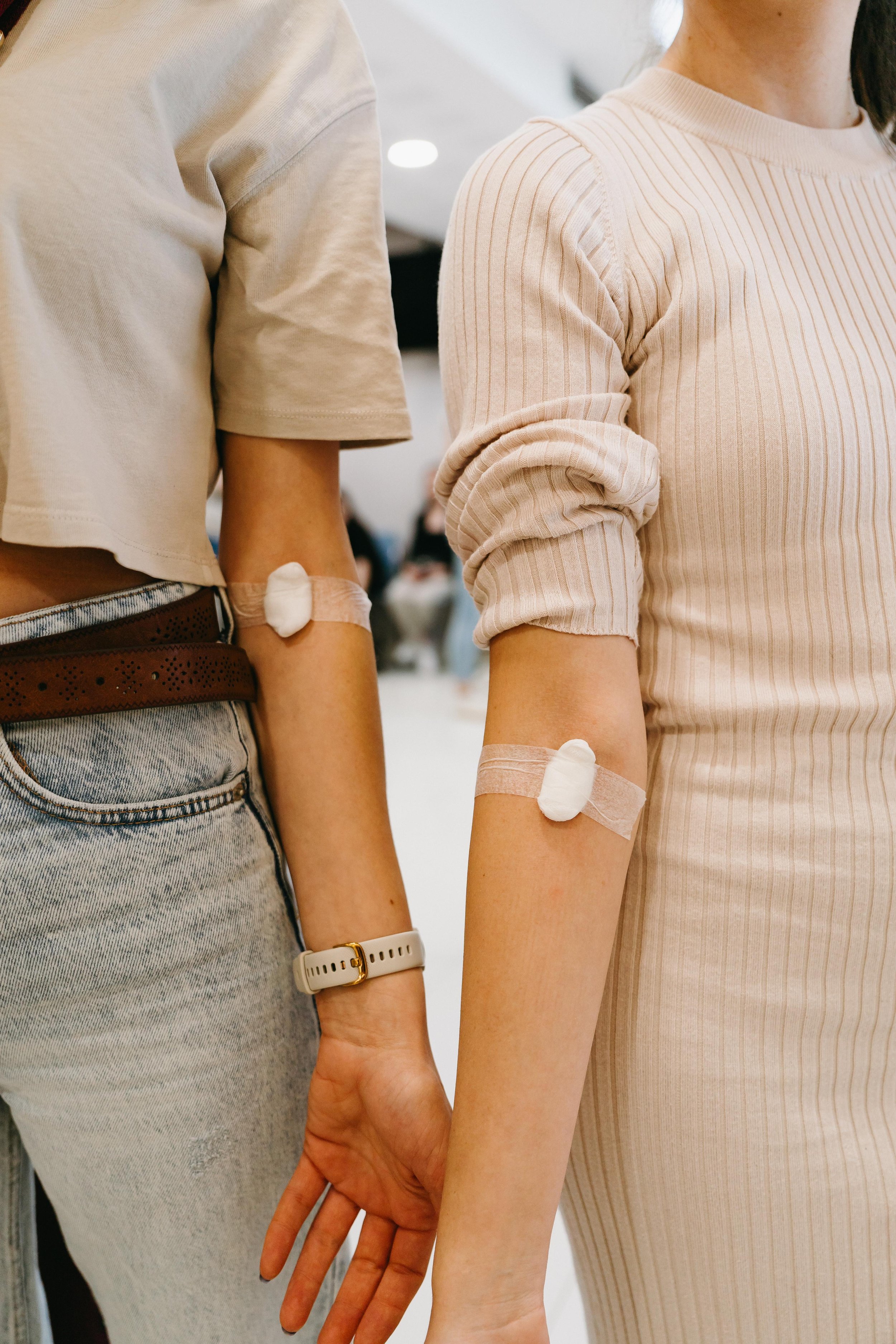The Fertility Facts
Much of our education focuses on preventing pregnancy, leaving women in the dark about crucial fertility information. Start here to learn more about how age affects fertility, and the impact of time on your ability to have a baby.
FACT #1
Test your egg AMH count (Ovarian Reserve)
Testing your Anti-Müllerian Hormone (AMH) levels is crucial for understanding fertility. AMH reflects ovarian reserve, indicating the quantity of eggs remaining.
This test provides valuable insight into reproductive health, for women planning pregnancy.
↘️ Low AMH levels may suggest diminished ovarian reserve, impacting fertility potential.
By assessing AMH, women gain early awareness of fertility status, empowering informed decisions regarding family planning and fertility preservation.
It is a quick and easy test done from a blood sample available at your gynaecologist or at a fertility clinic.
Age & Fertility
FACT #2
Divided in quality & quantity
Egg quality and quantity declines with age.
When we talk about a woman’s egg quality, we’re talking about the expected percentage of her total number of eggs that are normal. A chromosomally normal egg has 23 chromosomes and when fertilized by the sperm, which also has 23 chromosomes, the resulting chromosomally normal embryo will have a total of 46 chromosomes. As a woman’s ovary ages, she will have increasing numbers of aneuploid eggs which contain too few or too many chromosomes. Most aneuploid embryos will either fail to implant in the uterus or will result in miscarriage. In some instances, the aneuploid embryos may result in chromosomal disorders.

FACT #3
Medical freezing = medical conditions when fertility preservation is recommended
In the treatment of certain medical conditions, such as endometriosis surgery, cancer therapies, abdominal surgeries, or in cases of premature ovarian failure, a woman’s fertility can be significantly impacted. In these cases, it is advisable to consult with an assisted reproduction center, measure Anti-Müllerian Hormone (AMH) levels, and evaluate the appropriate next steps.
This proactive approach helps ensure that the woman maintains the possibility of having children using her own oocytes.
FACT #4
Be your own donor
The success of IVF relies heavily on the age of the egg used. Therefore, with advanced egg freezing procedures, you can preserve your eggs now, when they are higher quality, and plan your family on your own terms.
Although egg freezing is not a guarantee, it can provide options for you later in life.
Frozen eggs can be stored for many years - providing you a backup.
Graph of success rate IVF rate (younger vs. older eggs)
FACT #5
Woman are born with a certain number
of eggs, which only declines during her life.
Women are born with approximately 1 million potential eggs, but that’s all the eggs we’ll ever have. A female’s egg quality and quantity determine their likelihood of conceiving. Unlike other cells in the body, egg cells cannot regenerate.
A female is most fertile in their mid-20s, with a 25–30% chance of becoming pregnant each month. By 40, a female’s chance of conceiving drops to 5%.
The only way to preserve egg count for a later pregnancy is egg freezing. During egg freezing, we use medication to prompt those otherwise lost eggs to mature. Egg freezing doesn’t lower your body’s natural egg count; it simply makes use of more of the eggs you already have.

YOU CAN IMPROVE YOUR EGG COUNT
WITH LIFE STYLE CHOICES
THERE IS NOTHING YOU CAN DO TO
IMPROVE YOUR EGG COUNT






